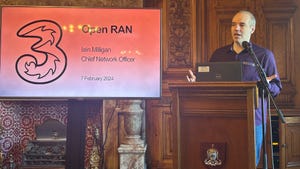
The Internet of Things (IoT) can be considered the catalyst that ignites and enables the transformation from national and regional industrial economies into a global digital economy. The scale of this change is anticipated to be unprecedented and will eclipse, in terms of its impact, the shift from an agrarian to an industrial culture that has taken place over the past 200 years or so.
There is optimism that, as more and more "things" connect with each other, everyday life will become less stressful and these invisible links will collectively propel countries' economies forward into a world without borders. We could be on the cusp of change, with endless possibilities for revolutionizing our working lives, creating new industries and new opportunities.
However, the utopian future prophesied by technology companies is running into a headwind of dystopian fear, fed by an economic situation that has many worried about their jobs and futures. This era of unprecedented fear is being leveraged by politicians and the media to push back against the progress toward a global economy and society.
The technologies
Multiple technologies have been developing and converging during the past ten years. The advances in low-cost ubiquitous connectivity with agile networks that can deliver value-add capability, combined with cloud computing, machine learning and advances in mobile computing and sensor technology, result in the IoT market poised to accelerate and grow rapidly over the next ten years.
By 2025, Huawei predicts that there will be nearly 100 billion IoT connections. If these IoT systems become joined together, then you have the possibility for an unprecedented free flow of data. This data tsunami will allow insight and knowledge, as big data analytics techniques are used to create context-relevant information and enhance the ability to make predictions and risk assessments on everything from jet engine maintenance to weather forecasts, and even traffic jams.
The IoT will become an intertwined and networked complex of systems on an enormous scale. The 100 billion different things will all need different types of connections, as well as unique applications and services. This is a huge challenge for the ICT industry to overcome, and creates a massive market to serve.
Ecosystems
A broad ecosystem of equipment manufacturers, telecom operators, ICT solutions providers, application developers, research institutions and government agencies will be required to tackle these challenges, and to deliver solutions. There is no single country or company that can deliver everything.
As a consequence, alliances and cross-border collaborations are occurring with increasing frequency, working on projects with open standards as their common denominator. This openness fosters the sharing of best practices and lessons learned across industries, and across the globe, accelerating the pace of international implementation and adoption.
Global community
Beyond the need for an ecosystem, there is also a need for an international, broad-based community to focus on the human aspect of IoT: the impact of these future transformation scenarios on people's livelihoods and quality of life. As mentioned, the impact of globalization, in terms of job losses, is already being leveraged as a fear factor in modern-day politics. The creation of "lights out factories" that are fully automated and require no human participation will exacerbate this trend, and have fundamental and dramatic impacts on the economics of both the developed and developing world.
While it is quite feasible that technology could progress substantially over the next 15 years -- achieving fully integrated, automated, and artificially intelligent factory systems that continuously improve themselves -- it is not as clear whether society, politics and human values can adapt as quickly. Current state economics, politics and capitalism have taken hundreds of years to develop and evolve, many parties have a vested interest in sustaining the status quo.
The goal of this global community should be to help business leaders, economists, social scientists and politicians think through the implications of IoT and an automated world, and plan accordingly. If we don't, the advent of an autonomous age could provoke a crisis and, as economist Milton Friedman pointed out, "Only a crisis produces real change. When that crisis occurs, the actions that are taken depend on the ideas that are lying around." This community would need to ensure that the right ideas are available and have been thoroughly thought through, to ensure a positive transformation and avoid Luddite reactions.
This blog is sponsored by Huawei. For more information, please visit Huawei Connect 2016.
— Steve Bell, Senior Analyst, Heavy Reading
Read more about:
OmdiaAbout the Author(s)
You May Also Like












